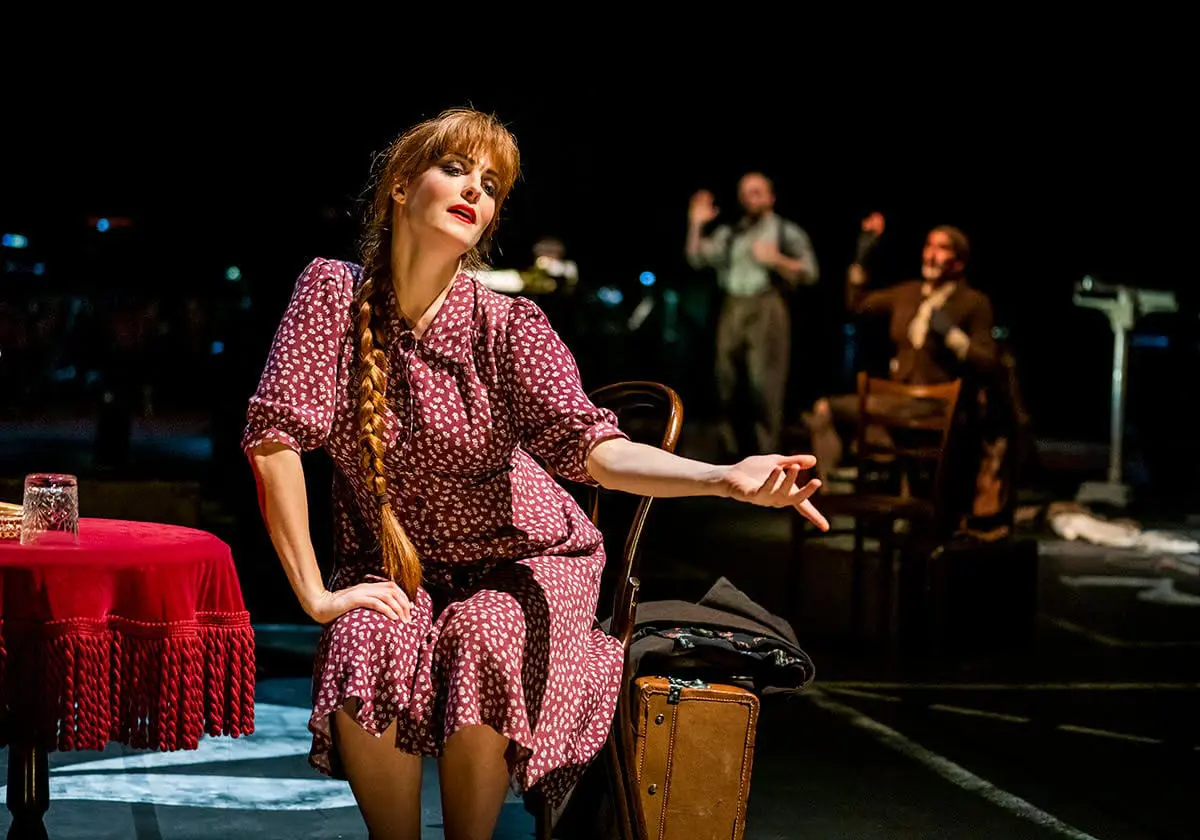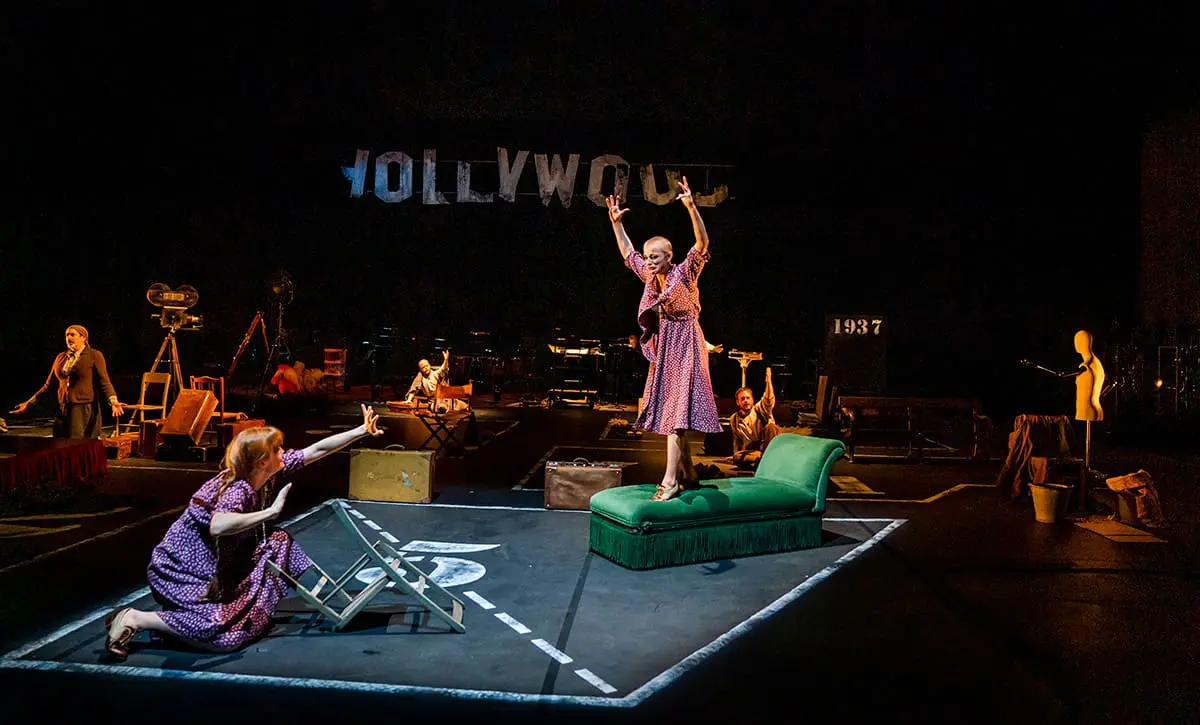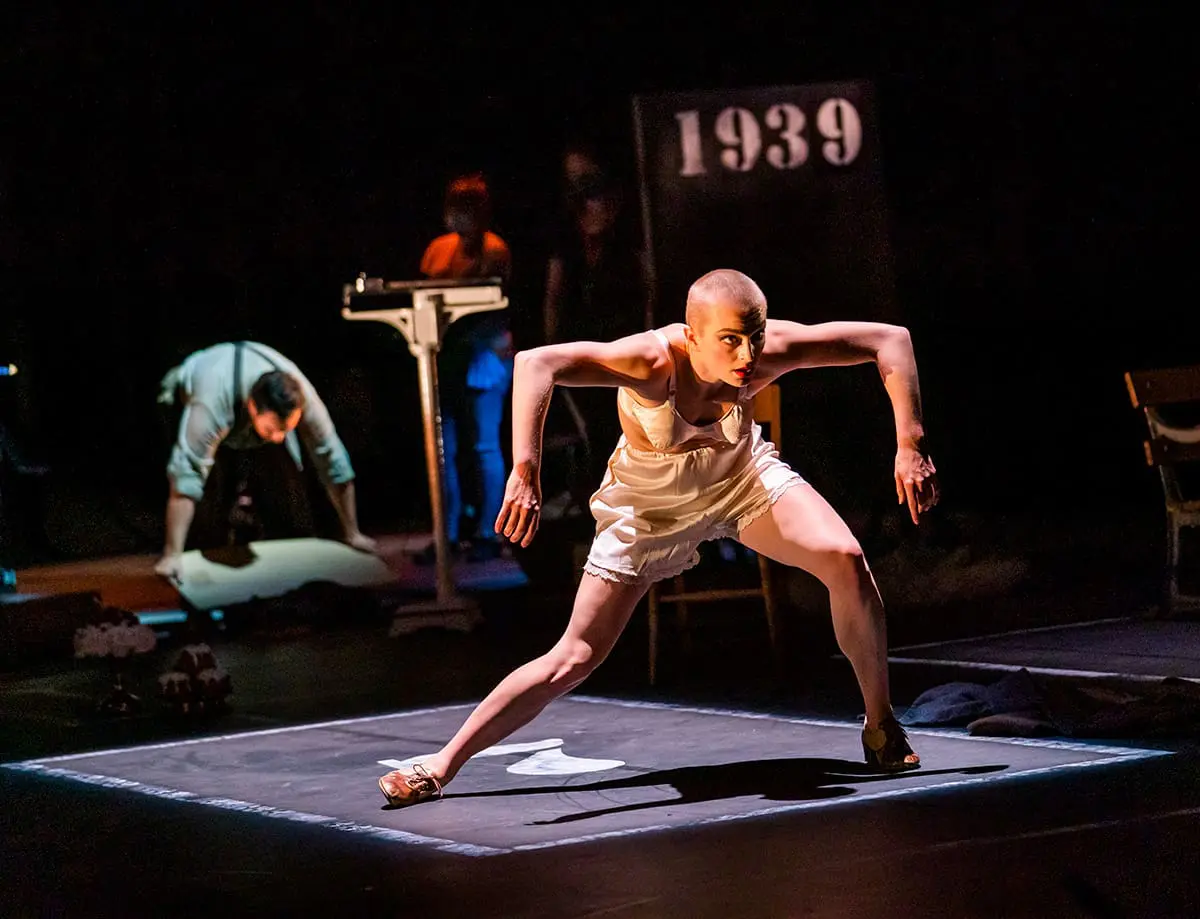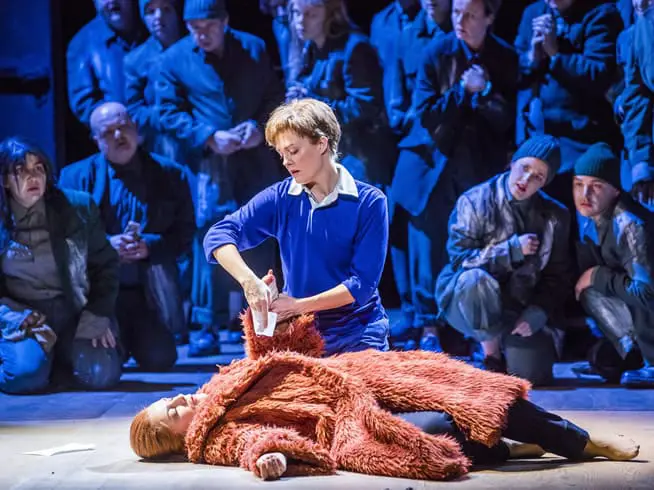“Few love to hear the sins they love to act.”
Truer words have never been spoken. But then again, Shakespeare’s Pericles never heard Kurt Weill and Bertolt Brecht’s The Seven Deadly Sins. Though this ballet chanté lags behind the popularity of the duo’s two previous collaborations, The Threepenny Opera and Rise and Fall of the City of Mahagonny, its small cast of a diseuse, a dancer, and a male quartet, as well as a running time of 38 minutes make The Seven Deadly Sins an ideal choice for an opera company wishing to livestream a staged production during a pandemic while adhering to strict health protocols and physical distancing.
And that’s exactly what Opera North in Leeds, England opted to do on November 21, 2020. Livestreamed back then for £10 from the Leeds Playhouse’s Quarry Theatre, Opera North’s The Seven Deadly Sins is currently streaming for free at OperaVision.eu until October 8, 2022.
Written, composed, and premiered in Paris in 1933, The Seven Deadly Sins is a suite of seven songs/scenes framed by a prologue and an epilogue. In a nutshell, two sisters, one a singer (Anna I), practical and cynical, the other a dancer (Anna II), passionate and idealistic, are sent away by their father, mother and two brothers to make money to build a family house on the banks of the Mississippi in Louisiana. During the sisters’ seven-year journey, they encounter seven sins in seven cities: Sloth in an unnamed city, Pride in Memphis, Anger in Los Angeles, Gluttony in Philadelphia, Lust in Boston, Greed in Baltimore, and Envy in San Francisco.
While Brecht’s text is a conspicuous critique of capitalism and America, Weill amuses his listeners with satirical parodies of a sacred madrigal in Sloth, a Strauss Jr. waltz in Pride, and a barbershop quartet with mother singing bass in Gluttony.
Michael Feingold’s English translation departs slightly from Brecht’s original German text. Feingold’s Annas are twin sisters rather than simply sisters. When the family castigates the two Annas, Feingold’s “we should tan their little hides for them because the bitches are not earning” contrasts crudely to Brecht’s milder “Denen muss man mal den Kopf waschen.”
Canadian mezzo Wallis Giunta is no stranger to Anna I. Her grasp of the role is secure, having sung it at her Lindemann Young Artist Development Program graduating recital in New York in 2013 before taking it to Miami, Seville, Toronto, and Portland. In the Leeds livestream, she sings it at the proper pitch–the range of which extends from the B below middle C to the G above the staff–and not a fourth lower as Lotte Lenya, the original interpreter, did in her 1956 recording. Giunta’s voice is focused, her tone is attractive, and her sense of phrasing is exemplary. Her enunciation, however, is inconsistent. Though she deliciously emphasizes the final consonant in “unproductive,” “destructive” and “keep,” “cities” becomes “cidies,” “little” becomes “liddle,” and the final “e” in “Los Angeles” is at first pronounced long, then afterward, short. Giunta sings and speaks with a North American accent while her onstage twin, dancer Shelley Eva Haden, speaks with a British accent.
Haden’s striking dancing runs the gamut from suave to grotesque in “Pride,” and from frenetic, leggy kicks sampled from 1930s Busby Berkeley musicals in “Anger” to overtly sexual pelvic thrusts while seated on a chaise in “Lust”. As the Father, tenor Campbell Russell delivered his aria in Greed with poise. Rounding out the family were Stuart Laing and Nicholas Butterfield as the Brothers, and Dean Robinson as the Mother.
Choreographer Gary Clarke’s stage direction is imaginative and intelligent. In a Zoom chat posted to Opera North’s website, Clarke admitted that he’d been influenced by Lars von Trier’s 2003 avant-garde film, Dogville. So, similar to Trier, Clarke has the twins move around to different areas of the stage marked off by white lines. Designer George Johnson-Leigh anchors each of these “sin boxes” with a stationary installation such as a park bench, a cabaret table and stage, a movie camera, and so on. The iconic Hollywood Sign umbrellas the set from above. Lighting designer Mike Lock illuminates the twins’ journey from box to box, or city to city, as well as the family’s murky movements in the “no man’s land” between the boxes. Wanting to give the family more of a historical reference, Clarke portrays them as immigrants in mid-1930s America, paralleling the lives of Weill and Brecht. Stephen Rodwell’s costumes capably evoke that era.
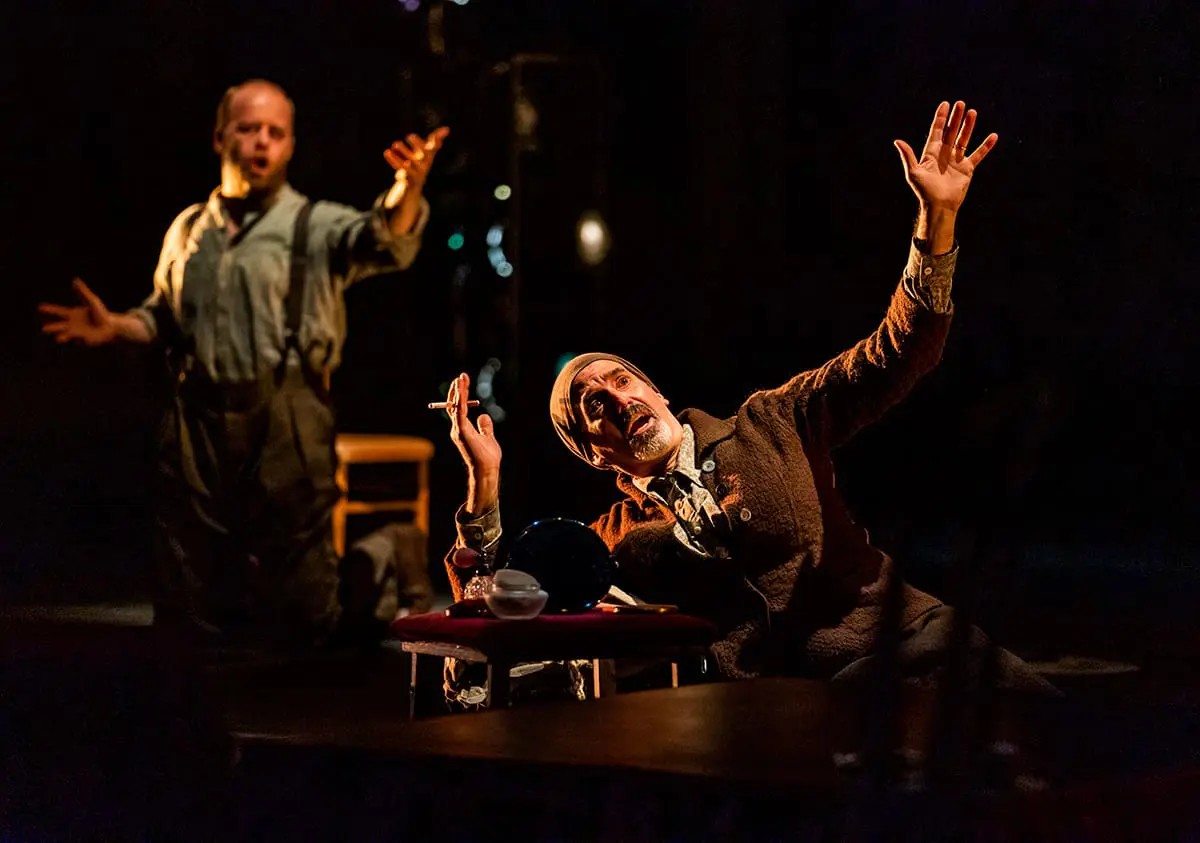
Left to right: Nicholas Butterfield (Brother) and Dean Robinson (Mother) Opera North’s The Seven Deadly Sins. Photo: Tristram Kenton
HK Gruber and Christian Muthspiel’s musical arrangement for 15 players, however clever, nonetheless sounds thin compared to Weill’s original scoring which is best realized with upwards of 40 musicians. The Orchestra of Opera North under James Holmes, who incidentally sports the number 77 on his back, is placed upstage on the theatre’s floor. Holmes, conducting with his back to the cast and likely watched by them via video monitors, paces the proceedings proficiently.
Opera Canada depends on the generous contributions of its supporters to bring readers outstanding, in-depth coverage of opera in Canada and beyond. Please consider subscribing or donating today.


